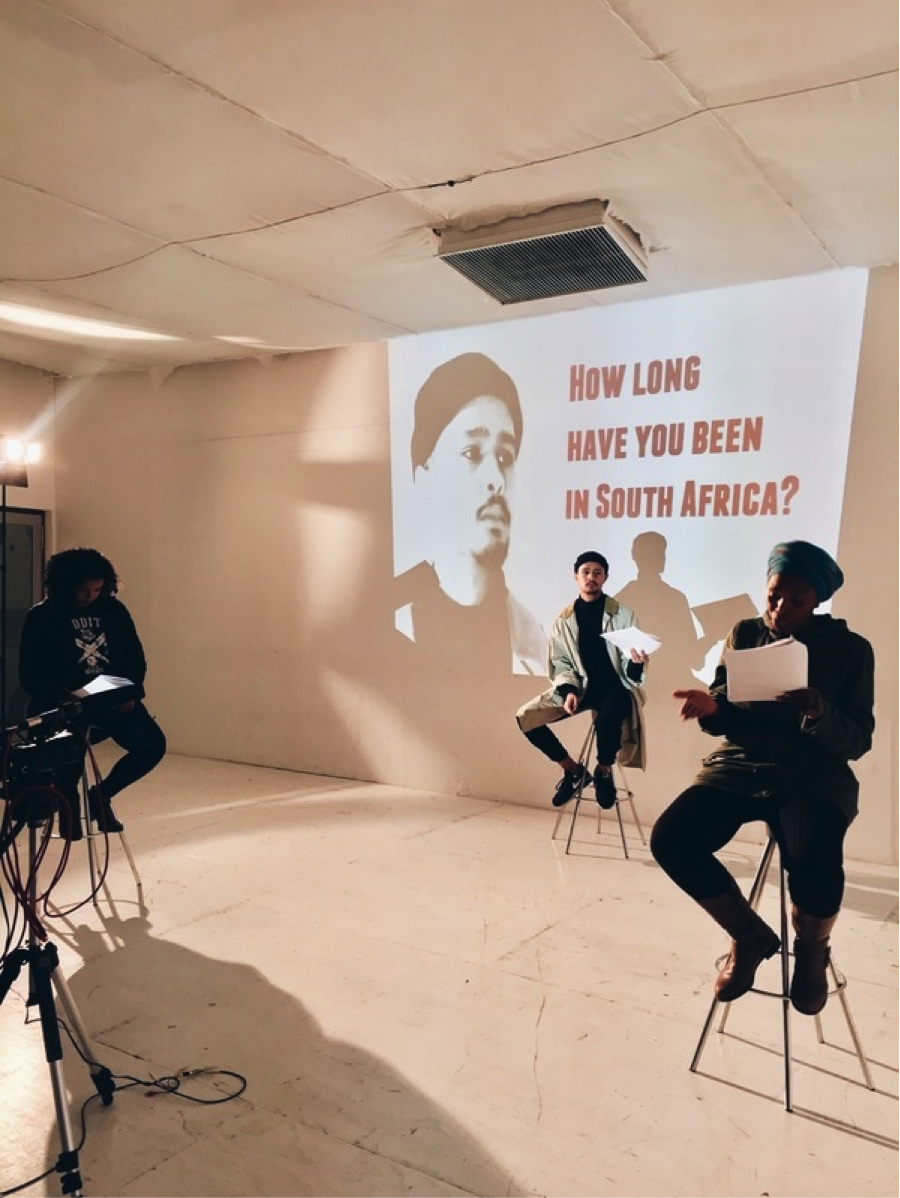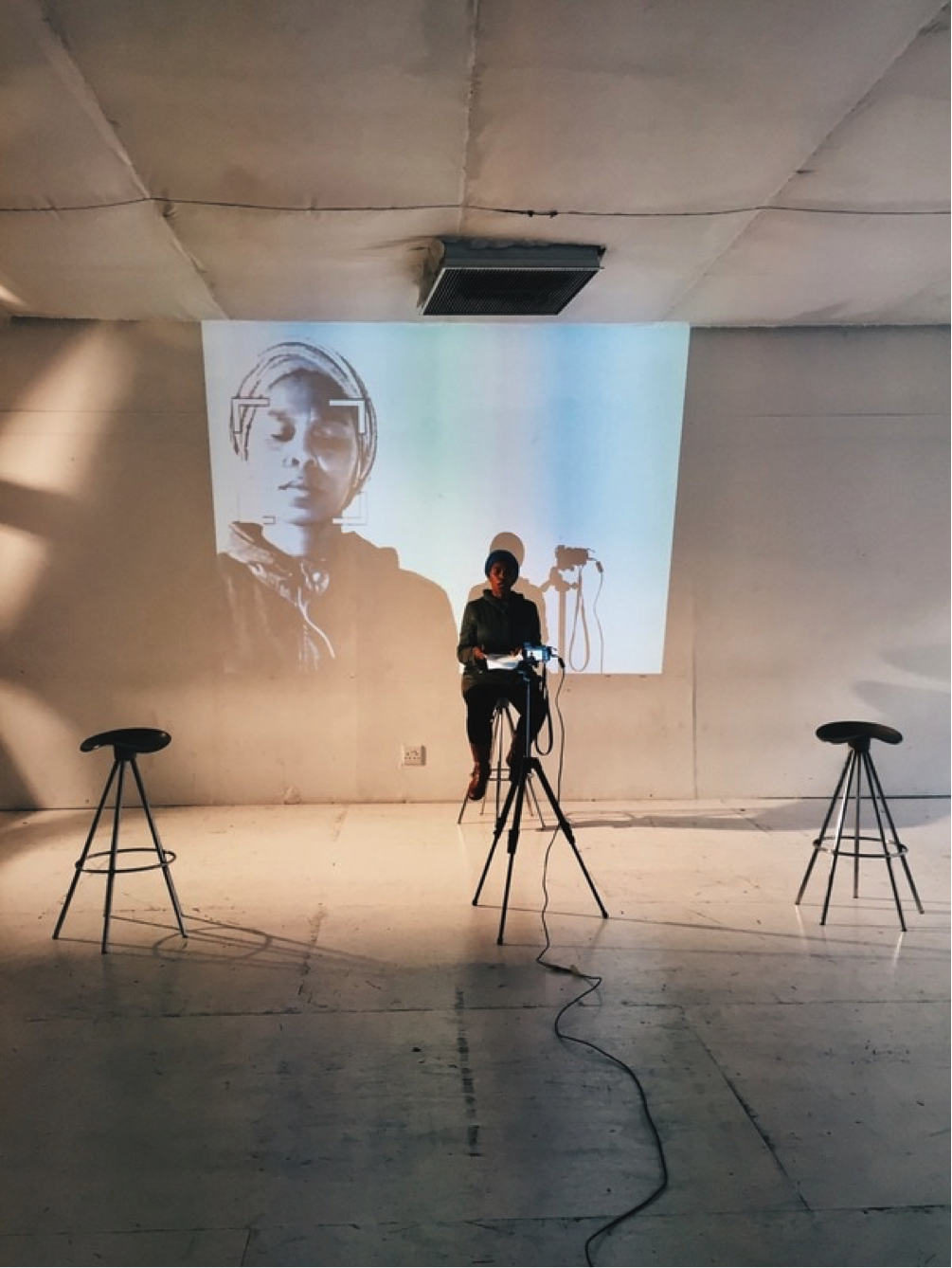Playwright, Amy Jephta, and director and writer, Paul Blinkhorn, have reached the second stage of their project – REFUGE. The project came to life when the two were hashing out their proposal for the British Council Connect ZA‘s partnership initiative in 2017. In this collaborative thinking process, it was realized that a reality that both countries share (South Africa and the UK) is that they act as spaces where refugees seek asylum.
The project sets out to verbalise the lived experiences of refugees within these two countries and is presented as open testimonies that are portrayed and spoken verbatim by actors. The possible problematic connotations of the afore mentioned statement (the fact that actors were involved) led me to question Amy about this.
She sheds some light, “Part of what we discovered while doing the interview processes, is that refugees are often reluctant to share their stories with just anyone. There’s a lot of trust that goes into opening up when the system you’ve been in has disappointed you or betrayed that trust so often. It simply wasn’t feasible for us to expect refugees to tell their stories in person. Using actors as the ‘vehicles’ for these stories, and changing refugees’ real names, gave us both the honesty of having the story presented without mediation (in their own words), and the distance and safety that kept refugees from being vulnerable.”
Going into the parallels of refugees from these two different countries, Amy tells me about the disillusionment many of them are faced with over the countries that they end up in. “There were a lot of testimonies that pointed out how hopeful people were/had been, and how that had changed. A lot of people were left in limbo by bureaucracy, administration, red tape. That’s a universal theme: bureaucratic procedures that are designed to make it difficult and complicated to cross borders as an asylum seeker.” Other situational similarities that they share are the lack of affordability some of them are faced with for returning to their home countries as well as prejudice taking the shape of xenophobia that looms in the countries they seek refuge.

In the second stage of the project, Amy and Paul are weaving the testimonies gathered into a full script and written play that they would like to perform in as many spaces as possible. “The funding from British Council/Connect ZA was to foster a new connection, spark a new project. Now it’s up to myself and Paul to carry forward the momentum for this work. This second phase of the process is self-determined – we have no set deadline.”
Telling me more about how the interviews took place, Amy explains that refugees/interviewees were always met at a place of their choosing and that permission was asked to record them prior to the commencement of the interview. Their main question was always, “What were you seeking Refuge from?”.
My interest was in the refugees’ response and feelings about being interviewed and their sentiments towards the project as a whole. Amy shares that some people have been excited about their efforts and believe that it is valuable for their stories to be heard hoping that it would work as a catalyst for change in their situations. Others, however, were wary of her and Paul, doubting that their work would be able to change their realities. “Mostly we have felt supported and welcomed. It’s been incredibly gratifying to see how open people are to share their stories if your only agenda is to genuinely listen.”
“I think as South Africans, we live in a society where we are protected from hearing and seeing these stories up close. It’s possible to live your whole life not knowing there is an entire community of refugees from the rest of Africa who have risked their lives to leave difficult situations and come here. It’s easy to make value judgements about people and to be xenophobic when you don’t attempt to understand the complexity of these situations. We’ve met people who were doctors, lawyers, activists, preachers, who were working professionals in the countries they fled from, who now live in dire circumstances and on the fringes of the countries they came to. I think the project is valuable because it allowed us to hear the details of this particular group of refugee lives.”
Amy and Paul set forth to give voice to a group of under-represented peoples whose stories are of value by the fact that they are accounts of real life; of real emotion and of real experience told by real people. I hope that projects such as these help bridge the gap of inequality and immeasurable difficulty that their lives are riddled with. For awareness to rise, REFUGE and other organizations supporting refugee centred causes need more support from the citizens situated within the countries they find themselves in.
